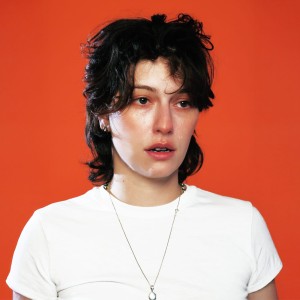
Bret Easton Ellis’s Top10
Bret Easton Ellis may be best known for his novels and short stories—including Less Than Zero, The Rules of Attraction, and American Psycho, which was adapted as a film in 2000 and recently transformed into a musical that opened on Broadway in April 2016. But he’s also an avowed cinephile, and in addition to writing screenplays, he’ll soon be making a foray into film directing, with the forthcoming thriller The Deleted. He sent us his ten favorite Criterion films in alphabetical order, with the caveat that his list “could have been different last week and it might be different next week.”
-
1
Jean-Luc Godard
Contempt
Most of Godard’s ’60s movies could fill this slot, but this is the filmmaker at his most widescreen epic and self-reflexive during this period, and as the whore who couldn’t turn the trick, he made the greatest movie about the filmmaking process ever made. Georges Delerue’s score is arguably the saddest, most elegiac in the history of movies.
-
2
Terrence Malick
Days of Heaven
Imagery so lush and intense, matched with the most beautiful Morricone score, make this Malick film—found and made in the editing room—a breathtaking ninety-four-minute montage of early twentieth-century rural life that remains unsurpassed as an example of a searching New Hollywood mastery.
-
3
Nicolas Roeg
Don’t Look Now
One of the scariest, most pessimistic modern horror movies, dressed as a romance. Roeg never had the elements come together the way they do here. Pino Donaggio’s score is unforgettably lush, and a reminder of how vital a collaborator movie music is. Christie and Sutherland are chic in deserted Venice. One of the most shocking climaxes ever—dread-filled and bloody. One of Paramount’s big Christmas films of 1973—today you can only marvel at that.
-
4
Michelangelo Antonioni
L’eclisse
A dice roll—it could have been L’avventura or La notte, but I rewatched this recently and was blown away by Antonioni’s mastery and control, and his epic nihilistic vision of upper-middle-class despair is sweeping and unrivaled. Alain Delon and Monica Vitti are the most gorgeous couple in ’60s international cinema—embalmed and yet completely alive. The trilogy is one of the great achievements in twentieth-century film.
-
5
Jean-Pierre Dardenne and Luc Dardenne
The Kid with a Bike
The Dardenne I had to choose. Their documentary realism was crazily influential and it gave contemporary film language a new urgency—but it can now actually seem mannered compared to how forceful it was when it first appeared. The most accessible Dardenne, about a troubled kid—suspenseful, emotionally overwhelming, and in the end a mystical experience about hope.
-
6
Peter Bogdanovich
The Last Picture Show
A masterpiece and one of the key achievements of 1970s New Hollywood—maybe only behind the Godfather films. Its mix of loving classicism, European influences, and ’70s permissiveness is jolting and desperately real. American small-town life has never been rendered with such empathy, unapologetic frankness, sadness, and despair. Timothy Bottoms’s performance is the most wrenching portrayal of male adolescence ever.
-
7
David Lynch
Mulholland Dr.
David Lynch’s movie infuriated me when I first watched it in an empty theater during its initial run in October of 2001 in New York. But with each subsequent viewing it grows richer, more complex, and more mysterious. It surpasses Contempt as the most tragic, agonizing film about movies and Hollywood subsuming souls with promises impossible to keep. Naomi Watts as the actress who never made it has never been better.
-
8
Robert Altman
Nashville
The mood of a decade condensed and reflected in 160 minutes—Altman’s masterpiece and the greatest film with a mid-’70s sensibility, wandering and a little stoned, yet layered and soaring with humanism. It’s Altman’s friendliest film in many ways, a party movie, even though it ends with an assassination. I don’t know a better movie to use as a time-capsule reminder of who we were and where we were as a country in 1975. Only Hal Ashby’s Shampoo comes close.
-
9
Roman Polanski
Rosemary’s Baby
A perfect horror film and, except for one bloody mess glimpsed early on and a few sexy scratches from Satan himself, no blood spilled. The movie builds dread with its narrative, but amplified by Polanski’s masterful technique, it becomes effortlessly menacing. The movie is still riveting and suspenseful after multiple viewings, maybe because it’s anchored in reality and so beautifully simple—the horror is played out within the realities of a modern marriage in late-’60s Manhattan and the “God is dead” movement. Second only to Chinatown in Polanski’s oeuvre.
-
10
Jonathan Demme
The Silence of the Lambs
I was tempted to replace this with Something Wild—along with Blue Velvet a key movie of the ’80s, when Demme was its finest mainstream director without a hit. But this is undeniably Demme’s greatest achievement—one of his only hits, and rumors persist that it was taken as a job. It contains maybe the most complexly realized heroine in a procedural and two of the most iconic performances in American movies. It seems Demme has been apologizing for its gore and violence ever since, but it’s a nearly perfect film while also a haunting reflection of the George H. W. Bush years in the same way The Coens’ No Country For Old Men seemed like a reflection of the waning years of his son’s presidency.














